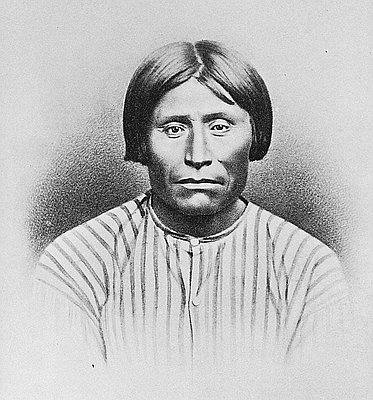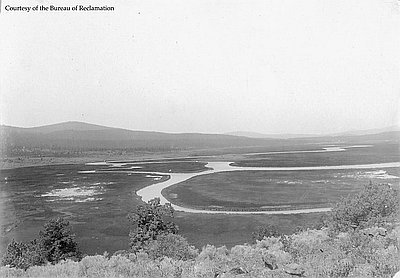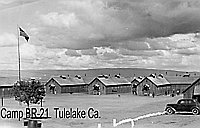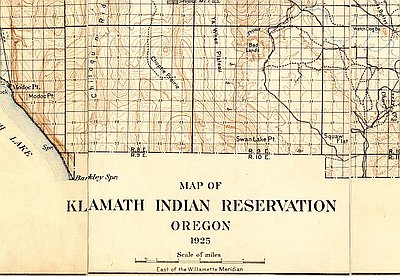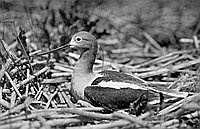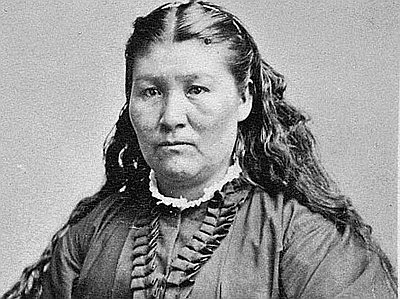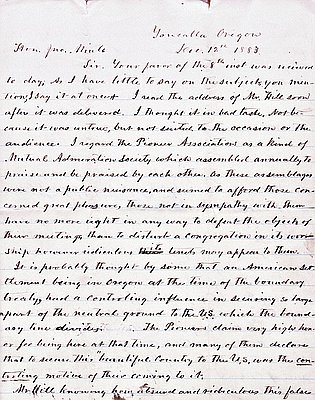The Treaty of 1864
As settlers filled the Upper Klamath Basin, fencing land and putting cattle out to graze, many feared raids by Indians. The Natives had lost access to country where they had hunted game and gathered edible plants. Many were starving. Ranchers and farmers did not want to fight, and with the United States embroiled in civil war, authorities did not want to contend with further massacres or an Indian uprising.
A Modoc leader, Keintpoos, whom whites knew as Captain Jack, asked the Indian agent, Judge Elisha Steele, whom President Abraham Lincoln had appointed to draw up a treaty. Judge Steele, however, lacked the authority to do this. He may have known that Congress had rejected treaties made with numerous California tribes in 1851 and 1852, allowing their lands to be taken without compensation or legal claim. Nonetheless, Judge Steele made an agreement with Captain Jack to try to establish a reservation in the Tule Lake area. In return, Modocs were to stop stealing livestock.
Back in Washington, D.C., the Office of Indian Affairs decided to negotiate a different treaty that would remove all of the Indians of the Upper Klamath Basin onto a reservation on the Oregon side of the border. Indian Superintendent J.W.P. Huntington convened over a thousand Indians at a place they called Council Grove, north of Upper Klamath Lake. In return for ceding their traditional territories—more than 20 million acres of south-central Oregon and northeastern California, including an expanse of high desert country to the east of the Klamath Basin—Modocs, Klamath, and the Yahooskin Band of Northern Paiutes were to inhabit less than 2 million acres on Klamath lands. No whites except for Indian agency employees and Army personnel were supposed to live there. In addition, the Indians were to receive thousands of dollars’ worth of supplies over the next fifteen years, after which they were expected to become self-supporting. However, supplies did not arrive for several years, until the Senate ratified the treaty. Even after the goods came, the Indian agent failed to distribute them fairly or fully. As a result, Captain Jack’s band of Modocs left the reservation, and the Treaty of 1864 helped to bring about what it was designed to avoid: an uprising, a massacre, and a full-scale war.
© Stephen Most, 2003. Updated by OHP staff, 2014.

